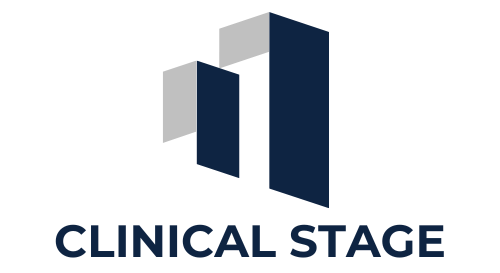The Impact of Technology on Clinical Trials
In recent years, the field of clinical trials has undergone a significant transformation, largely driven by the advent of new technologies. These technological advancements have modernized clinical research, enhancing efficiency, accuracy, and patient engagement. The purpose of this blog is to explore the various ways technology has impacted clinical trials, from digital health innovations to data management, trial design, patient recruitment, and compliance. This exploration will highlight the benefits, challenges, and future directions for the integration of technology in clinical research.
Overview of Technological Advancements in Clinical Trials
The landscape of clinical trials has evolved dramatically with the introduction of digital health technologies, sophisticated data management systems, and advanced analytics. Wearable devices, mobile health applications, and telemedicine have enabled real-time monitoring and patient engagement, while big data and machine learning have transformed data analysis. Furthermore, innovations in trial design, such as decentralized and adaptive models, have made trials more flexible and efficient. These advancements are not only enhancing the speed and quality of clinical research but also ensuring better compliance and data integrity.
Importance of Technology in Modernizing Clinical Research
Technology is playing a crucial role in modernizing clinical research by making trials more accessible, patient-centric, and efficient. It allows for the collection and analysis of large volumes of data, provides tools for remote monitoring, and enhances communication between researchers and participants. This modernization is essential for developing new treatments and therapies, as it accelerates the research process and enables more comprehensive and accurate data collection. Moreover, technology-driven approaches help in addressing challenges such as patient recruitment and retention, which are critical for the success of clinical trials.
Purpose and Scope of the Blog
This blog aims to provide a comprehensive overview of the impact of technology on clinical trials. It will cover key areas such as digital health technologies, data management, trial design, patient engagement, and compliance. Through case studies and examples, the blog will illustrate how these technologies are being used in practice and discuss the future trends that are likely to shape the field. The ultimate goal is to highlight the transformative potential of technology in clinical trials and provide insights into the future of clinical research.
Role of Digital Health Technologies
Wearable Devices and Remote Monitoring Tools
Wearable devices, such as smartwatches and fitness trackers, have revolutionized the way clinical trials are conducted. These devices can continuously monitor vital signs, physical activity, sleep patterns, and other health-related data, providing researchers with a wealth of real-time information. Remote monitoring tools, including home-based diagnostic devices, enable patients to participate in trials without the need for frequent clinic visits. This not only improves patient convenience but also allows for more consistent data collection, as patients are monitored in their natural environments.
For example, in a clinical trial for a new cardiac medication, wearable devices can monitor heart rate and rhythm, providing valuable insights into the drug's effects on cardiovascular health. Similarly, in trials for diabetes management, continuous glucose monitors can track blood sugar levels throughout the day, offering a detailed picture of how a treatment impacts glucose control.
Mobile Health Applications for Patient Engagement
Mobile health applications, or mHealth apps, are another key component of digital health technologies in clinical trials. These apps can be used for various purposes, including patient education, symptom tracking, medication reminders, and communication with the research team. They offer a convenient way for patients to engage with the trial, report their experiences, and receive support.
For instance, an mHealth app designed for a trial investigating a new asthma treatment might include features for tracking symptoms, recording medication usage, and providing educational content about asthma management. The app can also facilitate communication between patients and healthcare providers, ensuring that any concerns are addressed promptly.
Telemedicine and Virtual Trial Visits
Telemedicine has become increasingly important in clinical trials, especially in the context of the COVID-19 pandemic, which highlighted the need for remote healthcare solutions. Virtual trial visits allow researchers to conduct assessments, collect data, and interact with patients without the need for in-person visits. This approach is particularly beneficial for patients who live in remote areas or have mobility issues.
Telemedicine also enables researchers to expand the geographical reach of their trials, making it possible to include a more diverse patient population. For example, a trial investigating a new cancer treatment could include patients from different regions, enhancing the generalizability of the findings.
Advancements in Data Management and Analytics
Electronic Data Capture (EDC) Systems
Electronic Data Capture (EDC) systems have become a standard tool in clinical trials, replacing traditional paper-based data collection methods. EDC systems streamline data entry, reduce errors, and facilitate real-time data access and analysis. They also improve data security and compliance by providing audit trails and ensuring that data is stored in accordance with regulatory requirements.
For example, in a large-scale clinical trial involving multiple sites, an EDC system can centralize data collection, making it easier for researchers to monitor progress and identify trends. This can be particularly useful in adaptive trials, where real-time data analysis is essential for making decisions about study design modifications.
Use of Big Data and Real-Time Analytics
The use of big data in clinical trials has opened up new possibilities for data analysis and decision-making. Real-time analytics enable researchers to monitor trial progress, identify potential issues, and make adjustments as needed. Big data also allows for the integration of diverse data sources, such as electronic health records, genomic data, and patient-reported outcomes, providing a more comprehensive view of patient health.
For example, in a trial investigating a new treatment for Alzheimer's disease, researchers might use big data analytics to identify biomarkers associated with disease progression. This information can help in stratifying patients and tailoring treatments to specific subgroups, ultimately improving trial outcomes.
AI and Machine Learning for Data Analysis
Artificial intelligence (AI) and machine learning are increasingly being used to analyze data from clinical trials. These technologies can identify patterns and trends that may not be apparent through traditional statistical methods. They can also be used to predict patient outcomes, optimize trial design, and identify potential safety concerns.
For instance, machine learning algorithms can analyze large datasets to predict which patients are most likely to benefit from a new treatment. This information can be used to design more targeted and efficient trials, reducing the number of patients needed and speeding up the development process.
Innovations in Trial Design and Conduct
Decentralized and Hybrid Trial Models
Decentralized and hybrid trial models are becoming more common as researchers seek to make clinical trials more accessible and patient-centric. In decentralized trials, most or all trial activities are conducted remotely, using digital tools such as telemedicine, wearable devices, and mHealth apps. Hybrid trials combine elements of traditional and decentralized models, allowing for a more flexible approach.
These models can reduce the burden on patients, as they do not need to travel to a clinical site for every visit. They can also improve patient retention, as participants are more likely to stay engaged if the trial is convenient. For example, a hybrid trial for a new diabetes treatment might involve remote monitoring of blood sugar levels and virtual consultations, with occasional in-person visits for more comprehensive assessments.
Adaptive Trial Designs and Real-Time Adjustments
Adaptive trial designs allow researchers to make changes to the trial protocol based on interim data analyses. This can include modifying the sample size, changing the dosage, or altering the study endpoints. Adaptive designs are more flexible and efficient than traditional fixed designs, as they allow for real-time adjustments based on the data being collected.
For example, in a cancer trial, an adaptive design might involve increasing the dose of a drug if early results indicate that it is well-tolerated and effective. This can speed up the development process and reduce the time needed to bring new treatments to market.
Use of Simulation and Modeling in Trial Planning
Simulation and modeling are valuable tools for planning and designing clinical trials. These techniques can be used to predict potential outcomes, optimize trial design, and assess the feasibility of different study scenarios. Simulation models can also be used to evaluate the impact of different variables, such as patient demographics, treatment regimens, and data collection methods.
For instance, in a trial investigating a new vaccine, simulation models can be used to predict the potential impact of different dosing schedules and target populations. This information can help researchers design a trial that is both scientifically rigorous and practical.
Enhancing Patient Recruitment and Retention
Digital Recruitment Strategies and Social Media Outreach
Recruiting patients for clinical trials is a major challenge, and digital recruitment strategies are increasingly being used to address this issue. Social media platforms, online patient communities, and digital advertising are effective tools for reaching a wider audience and identifying potential participants. These strategies can be targeted to specific demographics, increasing the likelihood of recruiting patients who meet the study criteria.
For example, a trial investigating a new treatment for rheumatoid arthritis might use social media to target ads to individuals who have expressed interest in arthritis-related topics. This can help in identifying and recruiting patients who are more likely to be eligible and interested in participating.
Gamification and Incentive-Based Engagement
Gamification and incentive-based engagement strategies are being used to enhance patient retention in clinical trials. Gamification involves using game-like elements, such as points, badges, and leaderboards, to motivate and engage participants. Incentive-based engagement can include monetary rewards, gift cards, or other incentives for completing study activities.
For instance, a clinical trial for a new weight loss intervention might use a mobile app that includes gamified elements, such as challenges and rewards, to encourage participants to adhere to the study protocol. This can help in maintaining participant motivation and engagement throughout the trial.
Personalized Communication and Support Tools
Personalized communication and support tools are important for maintaining patient engagement and ensuring compliance with study protocols. These tools can include personalized reminders, educational content, and support from healthcare providers. Personalized communication can help in addressing individual patient needs and concerns, improving the overall trial experience.
For example, in a trial investigating a new treatment for depression, personalized communication might include regular check-ins with a study coordinator and access to mental health resources. This can help in addressing any issues that arise and providing support to participants throughout the trial.
Improving Data Integrity and Compliance
Blockchain for Secure and Transparent Data Management
Blockchain technology is being explored as a solution for improving data integrity and transparency in clinical trials. Blockchain provides a secure and immutable record of data transactions, ensuring that data cannot be altered or tampered with. This can be particularly valuable for maintaining the integrity of clinical trial data and ensuring compliance with regulatory requirements.
For example, in a multi-center clinical trial, blockchain can be used to track the collection and transfer of data from different sites. This can provide a transparent and auditable record of all data transactions, reducing the risk of data manipulation or fraud.
Electronic Consent (eConsent) Platforms
Electronic consent (eConsent) platforms are being used to streamline the informed consent process in clinical trials. These platforms allow participants to review study information, ask questions, and provide consent electronically. eConsent platforms can include multimedia elements, such as videos and interactive content, to enhance understanding and ensure that participants are fully informed.
For instance, an eConsent platform for a clinical trial investigating a new medication might include a video explaining the study procedures, potential risks, and benefits. This can help in ensuring that participants have a clear understanding of the study before providing consent.
Advanced Audit Trails and Monitoring Systems
Advanced audit trails and monitoring systems are essential for ensuring compliance and maintaining data integrity in clinical trials. These systems provide a detailed record of all data transactions, including data entry, modification, and access. They also include monitoring tools that can identify potential issues, such as data discrepancies or protocol deviations.
For example, in a trial investigating a new cancer treatment, an advanced audit trail system might include real-time monitoring of data entry and quality checks. This can help in identifying and addressing any issues promptly, ensuring that the data collected is accurate and reliable.
Case Studies and Examples
Case Study 1: Successful Use of Wearables in a Clinical Trial
One notable example of the successful use of wearables in a clinical trial is a study investigating the effects of a new medication on patients with heart failure. In this trial, participants were equipped with wearable devices that monitored their heart rate, physical activity, and sleep patterns. The data collected from these devices provided valuable insights into the medication's effects on cardiovascular health and overall well-being.
The use of wearables in this trial allowed for continuous monitoring of patients in their natural environments, reducing the need for frequent clinic visits. This not only improved patient convenience but also provided a more comprehensive picture of the medication's effects. The data collected from the wearables also helped researchers identify early signs of potential side effects, allowing for timely interventions.
Case Study 2: AI-Driven Patient Recruitment and Retention
In a clinical trial investigating a new treatment for multiple sclerosis (MS), researchers used AI-driven tools to enhance patient recruitment and retention. The AI system analyzed large datasets, including electronic health records and social media activity, to identify potential participants who met the study criteria. The system also used predictive analytics to assess the likelihood of patients remaining engaged throughout the trial.
The AI-driven approach resulted in a more efficient recruitment process, as researchers were able to identify and reach out to eligible patients more quickly. Additionally, the predictive analytics helped in designing targeted retention strategies, such as personalized communication and support, to keep participants engaged. As a result, the trial achieved higher recruitment and retention rates compared to traditional methods.
Case Study 3: Implementing Decentralized Trial Models
A pharmaceutical company implemented a decentralized trial model for a study investigating a new treatment for diabetes. The trial utilized a combination of remote monitoring tools, telemedicine, and mHealth apps to conduct most study activities remotely. Participants used a mobile app to log their blood sugar levels, medication usage, and other health-related data. Telemedicine visits were conducted for regular check-ins and assessments.
The decentralized model allowed the trial to reach a broader and more diverse patient population, including individuals in rural and underserved areas. It also reduced the burden on participants, as they did not need to travel to a clinical site for every visit. The use of digital tools facilitated real-time data collection and analysis, enabling researchers to make data-driven decisions throughout the trial.
Notable Labs: Pioneering the Future of Clinical Trials
In the ever-evolving landscape of clinical trials, Notable Labs stands at the forefront of integrating cutting-edge technology to revolutionize the way clinical research is conducted. As detailed in the comprehensive exploration of "The Impact of Technology on Clinical Trials," the industry has seen a significant transformation thanks to digital health innovations, advanced data management systems, and the implementation of AI-driven analytics. Notable Labs leverages these advancements to enhance the efficiency, accuracy, and patient engagement within clinical trials.
Wearable devices and remote monitoring tools are among the technologies Notable Labs utilizes to provide real-time data, reducing the need for frequent clinic visits and allowing for continuous patient monitoring. This approach not only improves convenience but also ensures more consistent and accurate data collection. Furthermore, Notable Labs incorporates mobile health applications to facilitate patient engagement, providing educational resources, symptom tracking, and seamless communication with healthcare providers.
Notable Labs is also pioneering the use of AI and big data analytics to optimize trial design and patient recruitment. By analyzing large datasets, the company can identify patterns and trends, predict patient outcomes, and tailor trials to specific patient subgroups. This not only enhances the efficiency of trials but also improves the likelihood of successful outcomes.
In addition, Notable Labs embraces decentralized and hybrid trial models, which have become increasingly popular for their flexibility and patient-centric approach. These models, supported by telemedicine and remote monitoring technologies, allow for broader and more inclusive participant recruitment, including those in remote or underserved areas.
Looking ahead, Notable Labs is exploring the integration of multi-omics data and precision medicine, aiming to deliver more personalized and targeted therapies. The company's commitment to data integrity and compliance is exemplified by its use of blockchain technology for secure data management and electronic consent platforms to streamline the informed consent process.
As the clinical trial industry continues to advance, Notable Labs remains dedicated to pushing the boundaries of what's possible, ensuring that new treatments and therapies can be developed more rapidly and with greater precision. Their innovative use of technology is not only enhancing the clinical trial process but also setting new standards for the industry, ultimately contributing to the advancement of medical science and the betterment of patient care.
Future Trends in Clinical Trial Technology
Integration of Multi-Omics Data and Precision Medicine
The integration of multi-omics data, including genomics, proteomics, and metabolomics, is expected to play a significant role in the future of clinical trials. This approach allows for a more comprehensive understanding of disease mechanisms and patient responses to treatments. By analyzing multi-omics data, researchers can identify biomarkers that predict treatment response, enabling the development of more targeted and personalized therapies.
For example, in a trial investigating a new cancer treatment, multi-omics data can be used to identify genetic mutations and molecular pathways associated with the disease. This information can help in stratifying patients and tailoring treatments to specific subgroups, ultimately improving treatment outcomes.
Expansion of Global Collaborations and Data Sharing
Global collaborations and data sharing are expected to become more common in the field of clinical trials. Collaborative efforts can accelerate the development of new treatments by pooling resources and expertise. Data sharing initiatives can also enhance the transparency and reproducibility of clinical research, as researchers have access to a broader range of data.
For instance, a consortium of pharmaceutical companies and academic institutions might collaborate on a large-scale clinical trial investigating a new treatment for Alzheimer's disease. By sharing data and resources, the consortium can conduct a more comprehensive and rigorous study, ultimately benefiting patients and advancing scientific knowledge.
Ethical and Regulatory Considerations for Emerging Technologies
As new technologies continue to emerge in clinical trials, ethical and regulatory considerations will become increasingly important. Issues such as data privacy, informed consent, and the use of AI in decision-making must be carefully addressed to ensure that clinical trials are conducted ethically and in compliance with regulatory requirements.
For example, the use of AI in clinical trials raises questions about data privacy and the potential for biased decision-making. Regulators and ethical committees will need to develop guidelines and frameworks to address these issues and ensure that AI is used responsibly in clinical research.
The impact of technology on clinical trials has been transformative, revolutionizing the way research is conducted and improving the overall quality and efficiency of clinical studies. From digital health technologies and data analytics to innovative trial designs and patient engagement strategies, technology is playing a crucial role in modernizing clinical research. The integration of new technologies has not only enhanced data collection and analysis but also made trials more accessible and patient-centric.
As the field continues to evolve, future trends such as the integration of multi-omics data, global collaborations, and ethical considerations will shape the future of clinical trials. The ongoing advancements in technology hold great promise for accelerating the development of new treatments and improving patient outcomes. Ultimately, the continued innovation and responsible use of technology in clinical trials will be essential for advancing medical science and addressing the healthcare challenges of the future.










